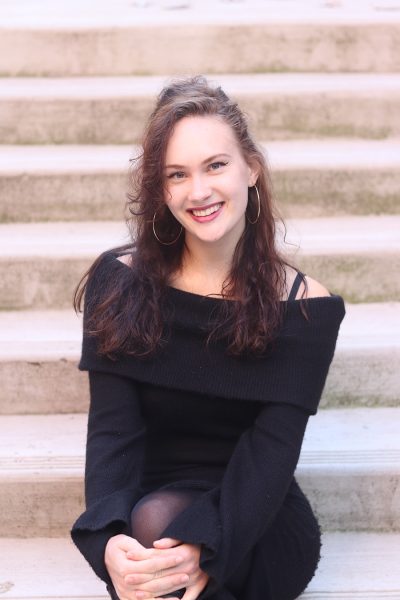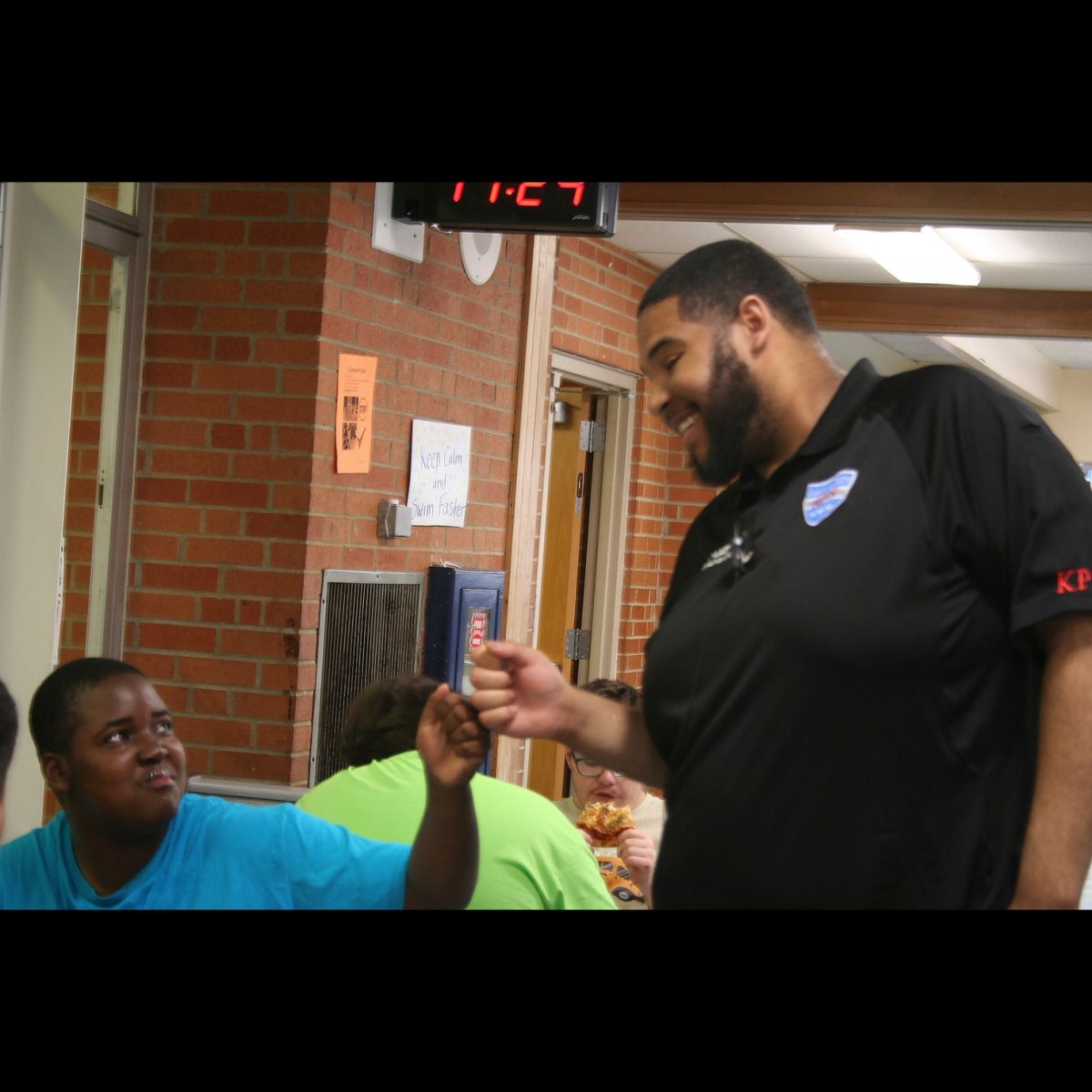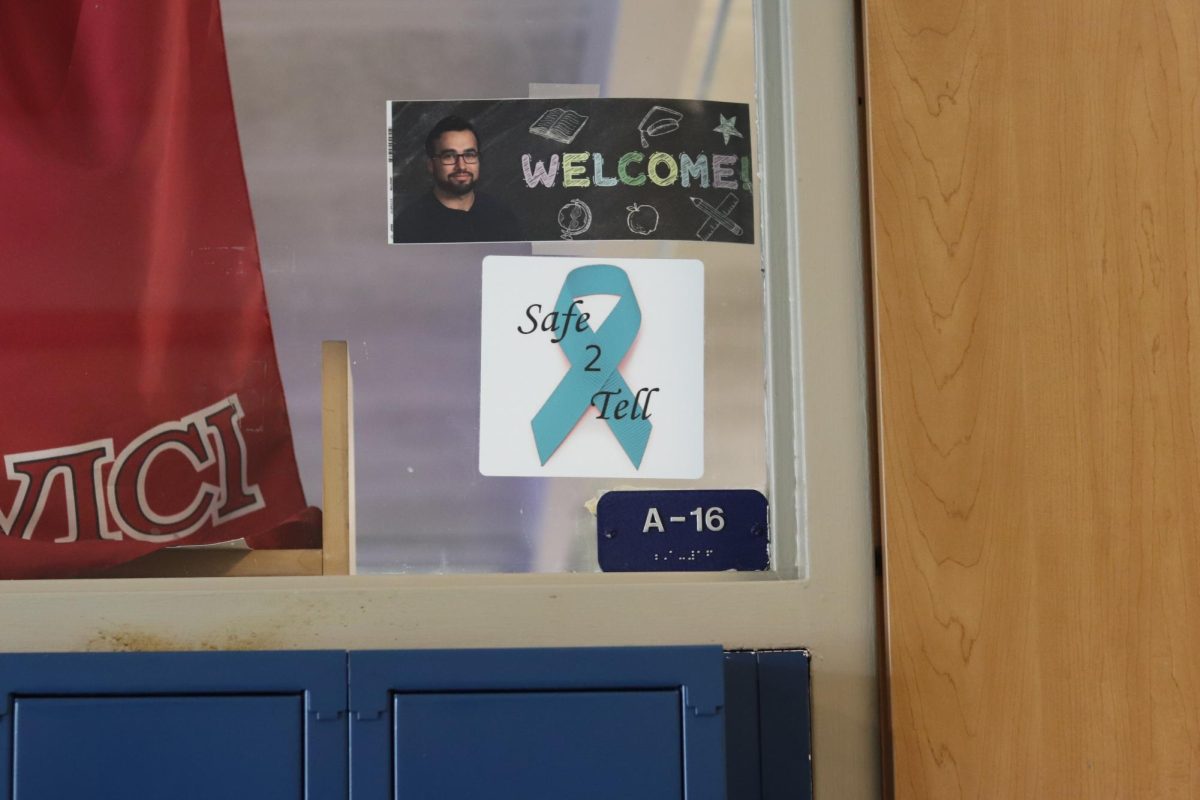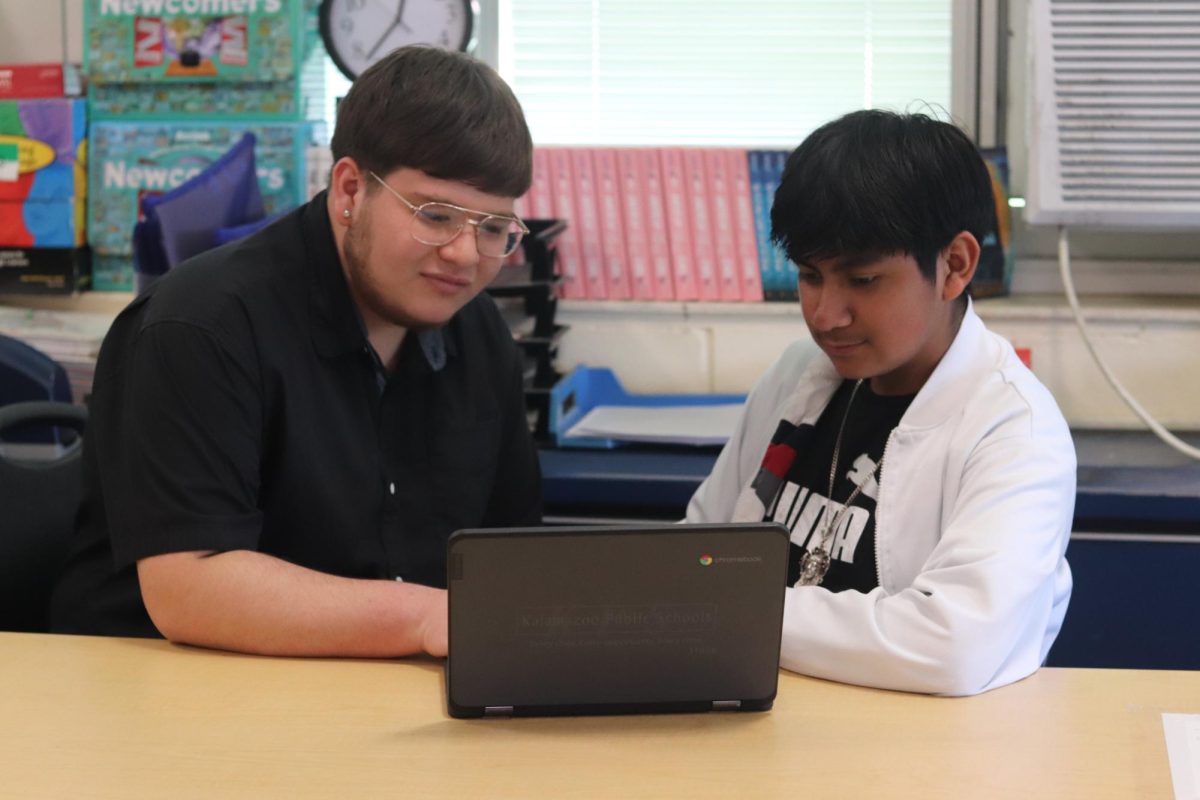Through hardship, 15-year-old Afghani refugee has found strength
June 2, 2023
Editor’s note: The name of the student in the following story was changed due to the sensitive nature of the topic.
One of the largest locations for receiving unaccompanied refugee minors is West Michigan, according to an article by Hillside Middle School.
When the Taliban took over Afghanistan in August of 2021, sophomore Zahra was living in the country’s capital, Kabul. Zahra left the country as a refugee as a result of the violence and arrived in the U.S. a few months later.
“Everyone was scared for their lives,” Zahra recounted. “You couldn’t actually go outside too late, and when you went to school, you’d come directly home. You never know what’s going to happen.”
Since the Taliban takeover in 2021, schools were destroyed, innocent people were killed and strict restrictions were put into place for full body coverings for women.
“You have to have coverage on your face as well,” Zahra explained. This is usually done by wearing a Burqa, which is an outer covering that goes over the body and face.
Before the takeover, when Zahra was able to go to school, she remembers that all her classmates had a strong work ethic and ambitious career goals.
“Everyone was excited to learn. They were very interested in becoming something for themselves, like a doctor or engineer,” said Zahra.
Zahra’s school in Kabul was smaller than Loy Norrix, with uniforms, regular math, science and religion classes. Students in her school also stayed all day in one classroom, rather than rotating rooms throughout the day like we do at Norrix.
When the Taliban gained power, other countries began accepting refugees and, according to Zahra, everyone began rushing to the airport to get on a plane to safety. Because of the influx of people, Zahra was separated from her family members and boarded a plane alone with help from soldiers.
“The soldiers told me, ‘Do you want to come with us or go back?”’ said Zahra.
About five minutes after she went through the door to get on a plane, the airport was under attack by the Taliban.
“I thought I was going to die,” Zahra recalled.
Separated from her family, Zahra was taken to Qatar with other displaced children for around three months, and there she began to speak English as a way to immerse herself in the language and learn it quickly.
“I started to talk in English little by little. The other girls didn’t know as much as I did, but it helped to talk to others, and I got better and better,” said Zahra.
After leaving Qatar, Zahra came to the United States, staying in a refugee camp in Michigan with thirteen girls, ranging in age from eleven to eighteen. There wasn’t much to do except sit in the communal living room during the day, and although the girls grew very close, there were regular disagreements.
Many of the disagreements involved whether or not the girls wanted to go outside. Because there were strict rules about when the girls could go outside, they all had to agree to go as a group before anyone was allowed out.
Upon arrival, all of their belongings and phones were taken. New clothing was passed out that didn’t fit. Zahra theorized that they took the girl’s clothing because it would be too difficult to check through all of their individual belongings, and the phones so that they wouldn’t have access to the news.
Zahra recounted one girl’s experience specifically, a poet and writer from Afghanistan who was targeted by the Taliban as a result of her activist work.
“The Taliban killed her father as a result of her being an activist in the news and in communities,” said Zahra. “She was very emotional and passed out many times. Seeing that was terrifying. She couldn’t remember what happened after she woke up. All of us would stare at her, we didn’t know. What if she doesn’t survive?”
Throughout the time that Zahra was at the camp, the non-profit organization Bethany Christian Services assigned her a caseworker who began looking for a family that would agree to adopt her. Luckily, Zahra was able to get into contact with her own family with the help of organizations back in Qatar, so she ended up going into foster care until her family could come to the United States.
“There was one night, and they just told me to pack my stuff and go. I didn’t know which family it was. I had never talked to them,” said Zahra.
The foster family that took care of Zahra was located in Holland, Michigan so she experienced Holland first before coming to Kalamazoo.
“Kalamazoo has a lot of different people from all over the place. In Holland it was less diverse,” Zahra said.
After maintaining contact with her family members in July of 2022, Zahra’s mother, brother and sister came to the United States. Her whole family now lives in Kalamazoo. The same non-profit organization, Bethany Christian Services, helped her mom and brother to find jobs, get a house, find schools and get necessary documents in order.
Zahra’s mother is currently working at a factory making small parts for cars from 3 p.m. to midnight and taking language classes during the day, so they are often separated by their schedules.
At first, Zahra began in the newcomer program at Phoenix High School, which mainly consisted of English as a Second Language classes (ESL). After around three months, Zahra’s test scores were strong, and she was eventually enrolled at Norrix with a couple of other students.
“They had a small little party in class for us to celebrate,” Zahra remembered before she left Phoenix.
Zahra had heard rumors about LN from students at Phoenix – of big fights, bad kids and other shenanigans.
“With the stories I was told, I was scared, but I wanted to come,” Zahra said with a smile.
Zahra has been here since the second trimester.
“Nobody talks to me really,” Zahra said. “It’s because I wear a hijab, I guess. I tried with a few people, but some people are just racist, I think.”
Zahra feels that part of the reason she has not made many connections is a result of her race, but she has no plans to let this stop her from achieving her goals, no matter what it takes.
“I would love to join some clubs and sports,” Zahra said with enthusiasm and expressed a strong desire to eventually join the school swim team.
“I love swimming and I plan to do it. I’m not gonna stop for anybody. I know it’s going to be hard, starting new in another country and fighting all of this. It wasn’t easy but I did it, and I’m going to do this too,” said Zahra.
Through her hardships, Zahra is hopeful for the future and grateful for the lessons she has learned along her journey. She feels like a stronger person as a result, with more maturity and confidence within her.
Zahra will likely achieve the goals she sets for herself. Her ESL teacher at Norrix, Jennifer Kruger, described Zahra as “highly responsible and very intelligent.”
“She is kind and supportive of other students. She makes me very proud,” said Kruger.
Zahra’s hard work has resulted in her fluency in three languages: English, Dari, and Urdu, while she is also currently learning Spanish at Norrix with Kristin Antoniotti.
“Zahra maintains her focus day in and day out,” Antoniotti shared, and feels that Zahra will add Spanish to the list of languages that she knows.
“Every language is unique and hard in its own way,” said Zahra.
Zahra advises students to watch videos of others speaking, to learn a language effectively, and jump in and speak it as much as possible, even if you aren’t fluent yet.
The Norrix halls are full of students with unique experiences, backgrounds, personalities and wisdom to share.
“Talk to people, get to know them,” said Zahra. “If you don’t like them, just leave them alone.”











Andrew Shear • Jun 9, 2023 at 7:37 pm
You really never know what happens in people’s lives, I don’t think I’ve ever seen her in the hall ways at Norrix, but if I do I’ll definitely try to talk to her.